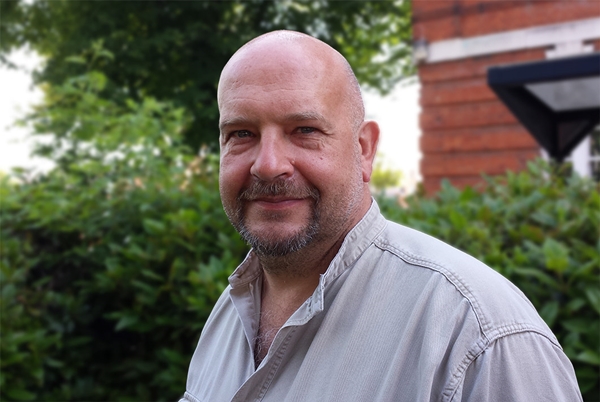
Professor Richard Hopkins has been promoted to lead the Agriculture, Health and Environment Department of the NRI. He will take up his new post on 1st October.
The Agriculture, Health and Environment Department has over 30 world-leading scientists tackling some of the major challenges to global food security, sustainable environmental management and insect-transmitted diseases. Staff in the department teach on undergraduate programmes in Geography, Environmental Sciences and Biology and postgraduate programmes in Agriculture and Environmental issues.
“The department is diverse and dynamic,” explains Richard, “with a huge range of research collaborations around the world and staff combine this with high-quality teaching. We have recently had a period of growth and I look forward to working with the five research groups to continue to develop our research and teaching portfolios.”
Richard joined NRI in the spring of 2014 moving from the Ecology Department of the Swedish University of Agricultural Sciences to lead the Pest Behaviour Research Group. A Professor of Behavioural Entomology, Richard brings a wealth of knowledge and experience to this role. He has taught extensively at NRI, taking up leading roles in the Biology degree programme known as ‘MBiol’ which combines Bachelor’s-level modules with study leading to a Master’s degree. He also teaches on the Environmental Sciences Programme at the Hunan University of Agricultural Sciences in China, and supervises a number of PhD students at NRI.
Richard works on habitat selection and egg laying site selection in mosquitoes, including a project on Aedes aegypti, the mosquito that transmits deadly diseases such as dengue and Zika. This project is being carried out together with the FIOCRUZ research organisation in Brazil. His other research on mosquitoes is linked to The Ethiopian Institute for Water Resource Management, International Centre of Insect Physiology and Ecology in Kenya and Addis Ababa University in Ethiopia. His earlier work focussed on host plant resistance to pests of cabbages and he continues to work on root flies together with colleagues in Edinburgh.
Richard previously read Agricultural Zoology at the University of Leeds, before going on to complete a PhD on host plant resistance to cabbage and turnip root flies, Delia radicum and Delia floralis, at the University of Edinburgh and Scottish Crops Research Institute (now The Hutton Institute) in 1994. He briefly spent a period teaching at Napier University in Edinburgh before moving to Sweden in 1995.
Professor Andrew Westby, Director of the Natural Resources Institute commented, “I am delighted to welcome Professor Hopkins to the Senior Management Team of the Natural Resources Institute. I am sure his commitment to world-leading research and excellent teaching will ensure the department continues to make an internationally leading contribution to work to address the UN’s Sustainable Development Goals which were designed to protect the environment and improve lives.”
For more information contact

